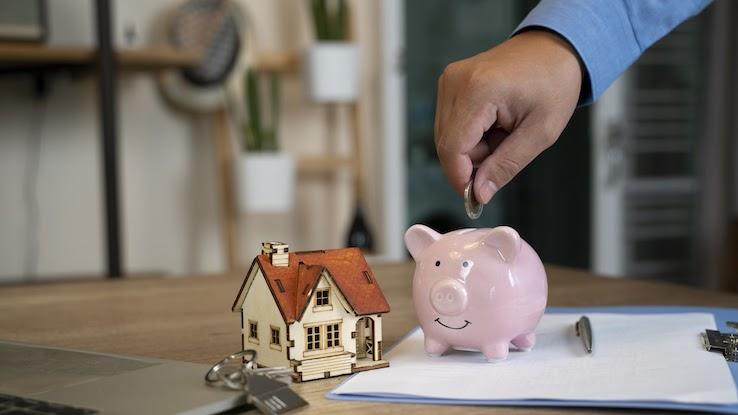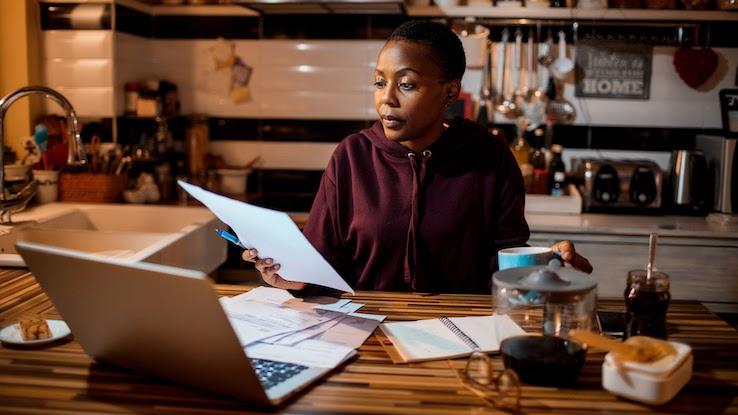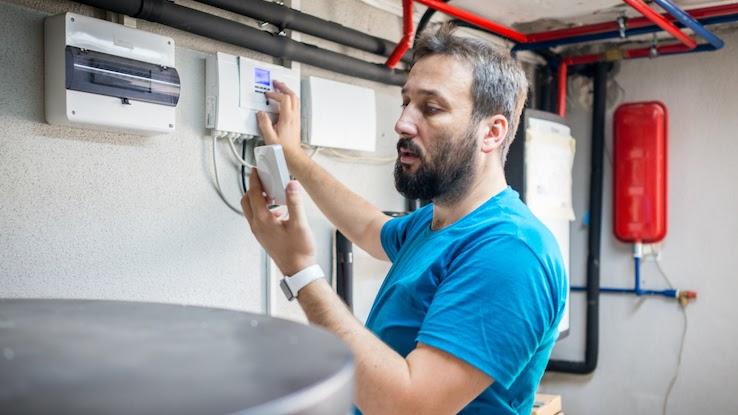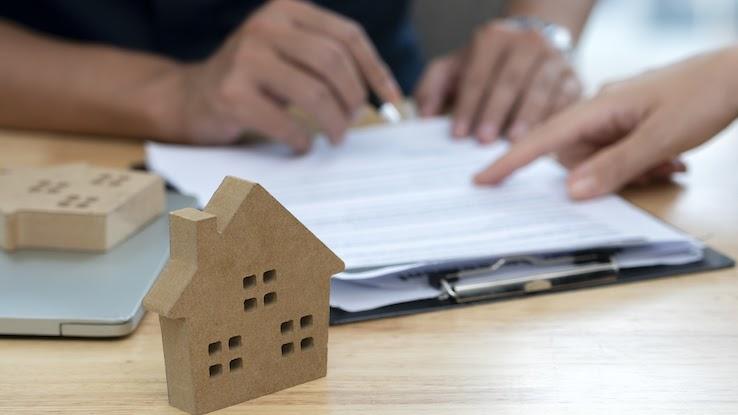A Buyer's Guide to Finding the Right Solution

Like many businesses, the real estate market took quite a hit at the beginning of the COVID-19 pandemic. However, the market is finally rising once again. In fact, many first-time buyers are looking to purchase new homes.
As a first-time homebuyer, it can be easy to get caught up in excitement of searching for your dream home. But, in reality, there's a lot of prep work involved with making your dream a reality. Not sure where to start? We've rounded up some must-read tips for first-time home buyers, all of which will help you avoid first-time buyer's remorse.
The number one tip? Save as much money as you can right now. Between the down payment, closing costs, and moving expenses associated with buying a home, it's important to save as much money as you can — and as early as you can. Moreover, having a higher down payment at the ready can actually improve your chances of being approved for a home loan and receiving a lower mortgage rate.

Our advice? Set up a savings account, particularly a high-yield account, dedicated to your home-buying costs. Next, look at where you can cut back on your current spending. Most of all, be sure to establish an emergency fund that's separate from your home-buying account. After all, you shouldn't be spending all of your savings on the down payment — who knows what else life might throw at you.
2. Get Your Credit and Debts in Order
It's important to really tackle your current finances before you begin the long process of buying a home. Look at your current debts and payments and work on paying off any existing lines of credit. After all, paying down your debts will boost your credit score, thus making you a prime candidate for a loan.

Also, while we're on the subject, now isn't the time to open a new line of credit, no matter how enticing that flashy credit card sounds. When you apply for mortgage pre-approval, lenders will pull your credit report. And they'll do it again before you actually close on the house and mortgage. If they see a new line of credit or another loan; discover that your credit balance has increased; or realize you're making late payments, you could be at risk of not getting the money you need for the home of your dreams.
3. Establish a Realistic Budget
Before you start looking at available homes or talking to a lender, you also need to establish a budget that will work for your current financial situation. Decide how much you would feel comfortable spending on a mortgage. Don't just think about the maximum that you're able to spend — give yourself a little wiggle room.

When developing this budget, take into account other factors, like your current bills and savings plan. You definitely still want to put some money aside in case something needs to be fixed around the house. Also, consider additional fees that may come with buying a home, such as Homeowner's Association (HOA) fees and insurance.
4. Find a Real Estate Agent You Can Trust
When it comes to a real estate agent, dependability is the name of the game. A quality agent will not only have experience working with homeowners, but an aptitude for educating them on the process too. After all, they'll be the one helping you pick out potential homes and neighborhoods, scheduling tours, negotiating contracts, and much, more more.

Speak with different agents about their experience, fees, and overall process when it comes to helping new home buyers specifically. That is, now's the time to be picky and find a good fit.
5. Research the Available Loan Options for the Best Fit
The type of loan that you choose will help determine your down payment and what kind of home you can afford, among other things. There are multiple types of home loan options out there. For example, conventional loans are the most common type of home loan. With this loan, you can buy a home with as little as 3% down.

Another type of loan is an FHA loan. Insured by the Federal Housing Administration, an FHA loan allows buyers to get a home with less strict financial and credit score requirements. With a 3.5% downpayment and a credit score as low as 580, you could still be on your way to owning a great home. Remember to request loan estimates from multiple lenders to compare the costs and interest fees, and take some time to look into first-time home buyer assistance programs from local and state resources.
6. Get a Preapproval Letter Before You Start Shopping
Before you start comparing homes and getting your hopes up, it's important to start the pre-approval process. You should have a pre-approval letter from a lender that will tell you exactly how much of a loan you can receive. It's based on your finances, with a lender having a deep look at your W-2s, bank statements, and credit score.

Some people may get a pre-approval letter and the pre-qualification process confused. A pre-qualification is simply an estimate of the amount of a home loan you could receive based on a brief look at your income and other information.
7. Do a Thorough, In-Person Tour
Make sure to do thorough, in-person tours of all the homes you're interested in. Before you even get to that walkthrough stage, you should make a list of must-haves — not unlike the folks who go on HGTV's House Hunters. How many rooms and bathrooms do your need? Do you want carpet or hardwood in each room? Do you want a big backyard? Looking at any pictures and videos of homes in your budget ahead of time will help you determine which houses you can skip when it comes to touring in person.

When you do an in-person tour, really imagine what your belongings will look like in the space. Think about the functionality of each room. Are outlets where you need them? Will your furniture fit? While researching the home you're touring, make sure to explore the surrounding neighborhood as well. Are there stores or parks nearby? Is the neighborhood quiet or lively? All of this really matters when you're making such a big investment.
8. Don't Be Afraid to Negotiate With the Seller
It is always a good idea to try to negotiate with the seller to potentially help with some of the closing costs or repairs, or to agree to a lower price. Here's where having a great real estate agent will come into play. Most likely, the agent will have experience when it comes to negotiating for the best deal.

Keep in mind, though, that those negotiations also depend on the local market, especially if there are other buyers interested in the same house. Strategize with your agent to come up with a strong negotiation plan.
9. Have a Home Inspection Done
It's vital to have a home inspector check out your potential home before you sign anything. It usually costs a few hundred dollars, which should be factored into your initial budget. However, it's worth the coast: a home inspector will check the house for any potential safety hazards or problems that need to be addressed. And, if repairs are needed, they may even be able to give you an estimate of the costs you'll be facing should you move forward with your purchase.

The inspector will also have knowledge of home maintenance and what tasks should be done on a monthly, quarterly, or annual basis. With that information, you may be able to renegotiate with the seller about any needed repairs — or at least pay to get them done ahead of time. After all, you want to prevent surprises down the road as much as possible.
10. Be Mindful of Closing Costs
Your down payment isn't the only payment you'll have to submit when this process is all said and done. Most often, you'll also need to cover any closing costs on your new home before you're handed the keys. Some of those costs commonly include appraisal fees, escrow fees, and pest inspection fees.

A Closing Disclosure will show you the exact closing costs, which are typically 2-5% of your total loan cost. Don't get overwhelmed: just take your time when it comes to preparing.
MORE FROM ASKMONEY.COM

A Buyer's Guide to Finding the Right Solution
Source: https://www.askmoney.com/loans-mortgages/ten-tips-first-time-home-buyers?utm_content=params%3Ao%3D1465803%26ad%3DdirN%26qo%3DserpIndex